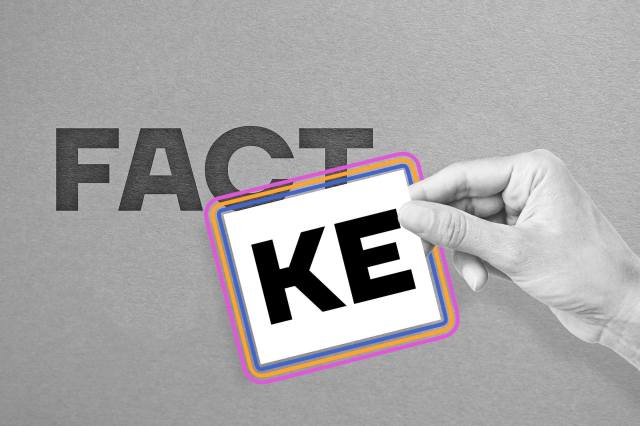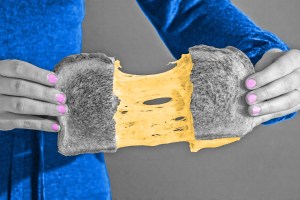
You Can’t Tell a Baby’s Sex From the Bump
One of the most pervasive genres of old wives’ tales is sex determination during pregnancy — but you can’t tell a baby’s sex from the outward appearance of a pregnant person’s body.
According to one myth, if the belly is sitting high it’s a girl, and if it’s lower, it’s a boy. In another, extra weight out front means a girl, and extra weight around the hips and bottom means a boy. Both are false, and have more to do with the anatomy of the pregnant person, whether it’s a first pregnancy, and the position of the baby.

You Can Swim Right After Eating
As a child, you may have been warned to wait a full 30 minutes after eating to jump in a pool or a lake, because not doing so could cause debilitating cramps that would cause you to drown. This is false. The reasoning behind the myth is that your body is using more blood to digest your snacks and doesn’t have enough left over to keep your arms and legs in swimming shape — and while the body does take a little extra blood to aid digestion, it’s not enough to give you more than a very minor cramp.

Swallowed Gum Doesn’t Stay in Your System for Years
Another common childhood myth is that when you swallow gum, it hangs out in your stomach for seven years. In reality, it makes its way through your body pretty quickly, except in extreme circumstances. But it is true that your body can’t digest it, so it comes out in the same form as when you first swallowed it. Too much swallowed gum can lead to intestinal blockages, but you’re not going to want to wait seven years to get that fixed.
More Interesting Reads

Coffee Doesn’t Stunt Your Growth
A long time ago, studies suggested that coffee could cause osteoporosis, a condition that causes bones to lose density, so a myth developed that coffee could stunt your growth. Later studies showed no clear link between coffee drinking and osteoporosis — it’s just that people who drank more coffee tended to not drink as many calcium-rich beverages such as milk, and lack of calcium can contribute to osteoporosis. However, osteoporosis itself doesn’t tend to make people shorter (although it’s associated with bone fractures that can). Nevertheless, the old wives’ tale persisted. If you have growing left to do, just make sure to eat a balanced diet and get all your vitamins and minerals.

Pulling Gray Hairs Doesn’t Cause Two More To Pop Up
There’s a myth that if you pluck out a gray hair, two more will grow back, but it’s not based in fact. Every strand of hair on our bodies grows from its own single hair follicle, and one by one, those follicles eventually stop producing pigment. When that happens, the follicle grows gray or white hair, but it still only grows one single hair. It has no effect on the surrounding follicles — so plucking a gray hair affects only that hair.
You do, however, run the risk of zero hairs growing back from that follicle when you pluck one, so if you want to avoid bald patches, it’s best to leave them on your head.

Cracking Knuckles Doesn’t Cause Arthritis
When you “crack” your knuckles, the telltale popping that comes from your joints sounds a little distressing, and maybe irritating, but it’s not as dramatic as it sounds. The noise is caused by nitrogen bubbles popping in your synovial fluid, a substance that lubricates the joints. The bubbles come back in about 20 minutes.
Contrary to a popular belief, cracking your knuckles doesn’t cause arthritis or any other long-term damage, but it doesn’t cause a lot of short-term relief either. You might feel a little looser in the joints, but the effect is mostly psychological.

You (Probably) Don’t Swallow Spiders in Your Sleep
You may have heard the urban legend that people swallow around eight spiders in our sleep every year, but you’ll be relieved to know that the number is closer to zero. We’re not especially appealing to crawl on, because even in our sleep we make a lot of noise and movement that spiders would be sensitive to. If a spider did crawl on you, it could wake you up before it became an accidental snack. It’s theoretically possible that a spider could crawl in your mouth while you’re sleeping, but it’s highly unlikely.












